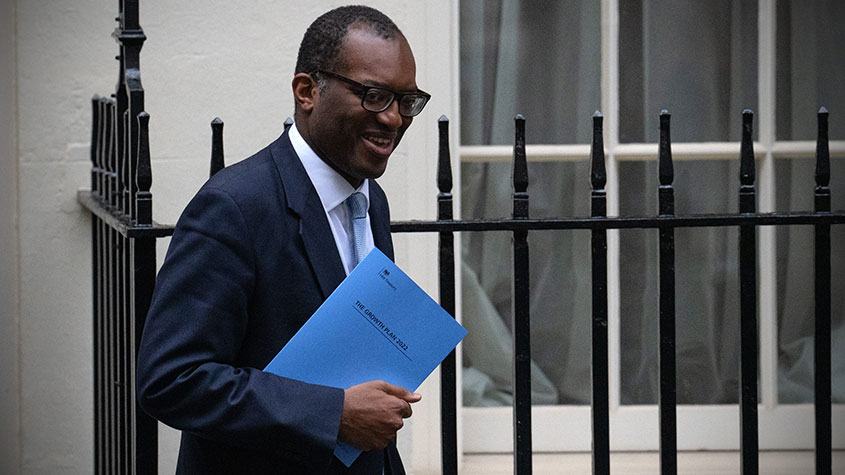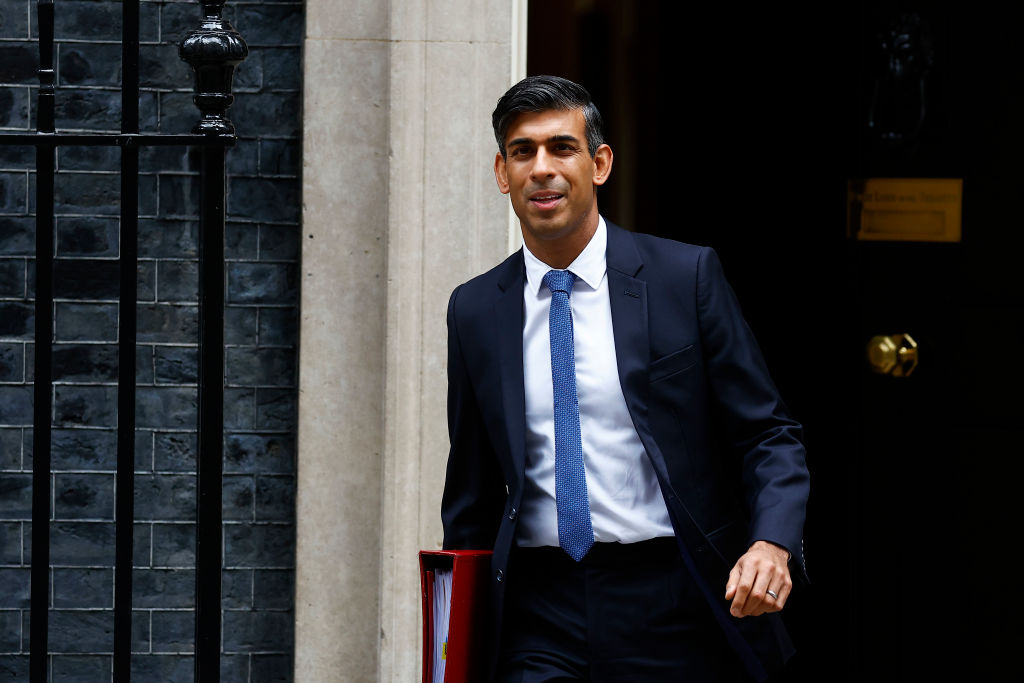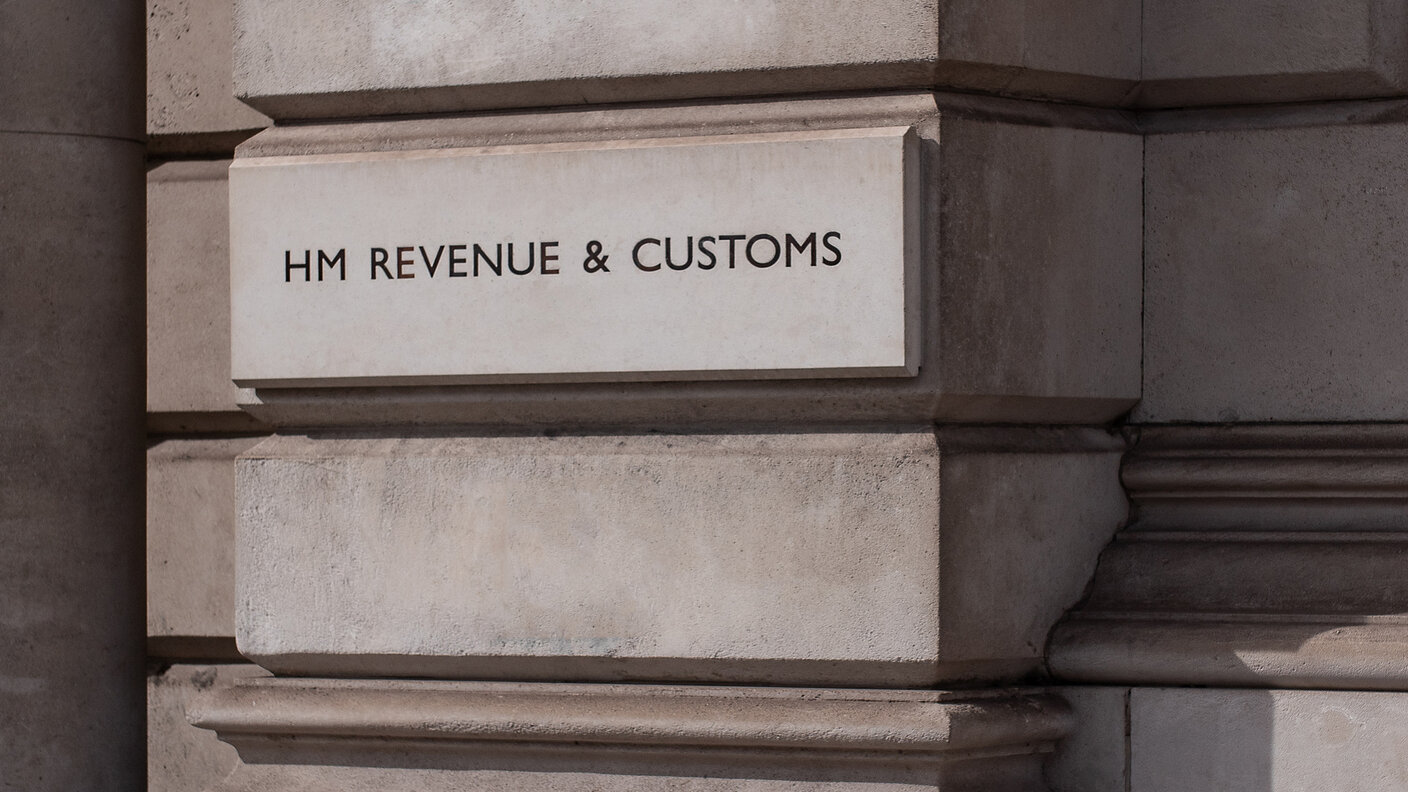Mini-Budget: stamp duty and income tax cut as Kwarteng targets growth
Chancellor Kwasi Kwarteng announced sweeping tax cuts in his mini-Budget statement. Here's what was said.


Get the latest financial news, insights and expert analysis from our award-winning MoneyWeek team, to help you understand what really matters when it comes to your finances.
You are now subscribed
Your newsletter sign-up was successful
Want to add more newsletters?

Twice daily
MoneyWeek
Get the latest financial news, insights and expert analysis from our award-winning MoneyWeek team, to help you understand what really matters when it comes to your finances.

Four times a week
Look After My Bills
Sign up to our free money-saving newsletter, filled with the latest news and expert advice to help you find the best tips and deals for managing your bills. Start saving today!
Chancellor Kwasi Kwarteng announced sweeping tax cuts in his mini-Budget statement. The government’s “Growth Plan” has set a target of reaching a 2.5% rate of economic growth as it tackles a tax burden predicted to reach its highest level since the 1940s.
There had been much speculation, but here’s what he confirmed.
Energy costs
Kwarteng reiterated the government’s plan for tackling high energy prices. Earlier this month prime minister Liz Truss announced the Energy Price Guarantee (EPG), which would see the average household pay £2,500 per year for two years from October 2022. He said this, on top of the Energy Bills Support Scheme which will see all households get £400 over the winter, will save households £1,400 on energy bills for the next year.
MoneyWeek
Subscribe to MoneyWeek today and get your first six magazine issues absolutely FREE

Sign up to Money Morning
Don't miss the latest investment and personal finances news, market analysis, plus money-saving tips with our free twice-daily newsletter
Don't miss the latest investment and personal finances news, market analysis, plus money-saving tips with our free twice-daily newsletter
Bills for businesses, charities and public sector organisations have also been capped.
Kwarteng also said a new “Energy Supply Taskforce” will be put in place to negotiate longer-term agreements with gas producers.
Tax cuts
Kwarteng announced he will be scrapping the 45% top rate of income tax for those earning over £150,000 replacing it with a 40% rate instead. The government is also cutting the basic rate of income tax to 19% in April 2023.
The Bank Corporation Tax Surcharge, which was scheduled to rise from 19% to 25% next April, has also been scrapped to boost investment in the UK. Kwarteng also removed the cap on bankers’ bonuses.
The reversal of the 1.25% rise in National Insurance contributions was confirmed yesterday and reiterated today. The increase was put in place in April by then-chancellor Rishi Sunak. Kwarteng also confirmed the health and social care levy has been scrapped.
In hopes of boosting the tourism sector Kwarteng said he will be introducing a digital VAT-free shopping scheme for tourists “as soon as possible”.
Alcohol duty rates will also be frozen from 1 February 2023, and the levy increase planned for next year has been cancelled.
Investment zones
The government will be setting up new investment zones across the UK, which will benefit from lower taxes, easier planning application permission, increased funding, zero-rate NI employer contributions for certain employees, and stamp duty land tax relief.
Changes to stamp duty
Kwarteng didn’t go so far as to abolish stamp duty, but he did cut stamp duty. From today the government is increasing the threshold above which stamp duty tax has to be paid from £125,000 to £250,000.
First-time buyers will not have to pay tax on the first £425,000 of their house purchase, up from the £300,000 currently. The maximum value of a property on which first-time buyers will get tax relief is also going up from £500,000 to £625,000.
Cuts to universal credit
The government is making changes to Universal Credit to “encourage more people into work”. Those who receive benefits will have to prove they are taking steps to move into a higher paying job or risk having their benefits reduced.
Kwarteng also announced the government will provide additional support to over-50s to get them back into work.
Stamp duty calculator
If you’re buying a house, depending on the transaction price, you may have to still pay some tax. You can work this out using our stamp duty calculator below.
The calculator is not suitable for first-time buyers, those buying non-residential land or property or non-UK residents.
Here are the rates at which stamp duty tax applies:
Up to £250,000 – you‘ll pay 0% on the portion within this band.
From £250,001 to £925,000 – you‘ll pay 5% on the portion within this band.
From £925,001 to £1.5 million – you‘ll pay 10% on the portion within this band.
Over £1.5 million – you‘ll pay 12% on the portion within this band.
Get the latest financial news, insights and expert analysis from our award-winning MoneyWeek team, to help you understand what really matters when it comes to your finances.
Nic studied for a BA in journalism at Cardiff University, and has an MA in magazine journalism from City University. She has previously worked for MoneyWeek.
-
 Should you buy an active ETF?
Should you buy an active ETF?ETFs are often mischaracterised as passive products, but they can be a convenient way to add active management to your portfolio
-
 Power up your pension before 5 April – easy ways to save before the tax year end
Power up your pension before 5 April – easy ways to save before the tax year endWith the end of the tax year looming, pension savers currently have a window to review and maximise what’s going into their retirement funds – we look at how
-
 Is an inheritance tax (IHT) cut on the way?
Is an inheritance tax (IHT) cut on the way?Tax Talk that the government might cut or scrap inheritance tax in its Autumn Statement is rife. We look at how it could be reformed, and what difference it would make.
-
 Government considering cuts to inheritance tax, reports say
Government considering cuts to inheritance tax, reports sayThe Sunday Times reported government officials are considering cuts to inheritance tax ahead of the general election.
-
 Inheritance tax receipts hit £1.2bn
Inheritance tax receipts hit £1.2bnNews More people are being hit by inheritance tax amid rising property prices - and 16m are unaware of whether or not their families could be left to pay a bill when they die.
-
 Cut taxes? No, reform them instead
Cut taxes? No, reform them insteadOpinion The way the state raises money is far too complicated, says Merryn Somerset Webb. Time for a radical revamp.
-
 HMRC launches one week warning for tax credit renewals
HMRC launches one week warning for tax credit renewalsNews Tax credit customers have until 31 July to submit renewals amid a scam warning from HMRC
-
 How to avoid the savings interest tax trap
How to avoid the savings interest tax trapSavers are being urged to look at ways to shelter their cash from the taxman as the tax burden on savings escalates.
-
 Six inheritance tax myths debunked
Six inheritance tax myths debunkedLife’s two certainties — death and taxes — come together to form the confusing world of inheritance tax. Here is everything you need to know about the misunderstood space to help save you money.
-
 Will IHT be cut?
Will IHT be cut?News Sunak could make cuts to Inheritance Tax cuts later this year, reports suggest. We explain what this could mean for you.
